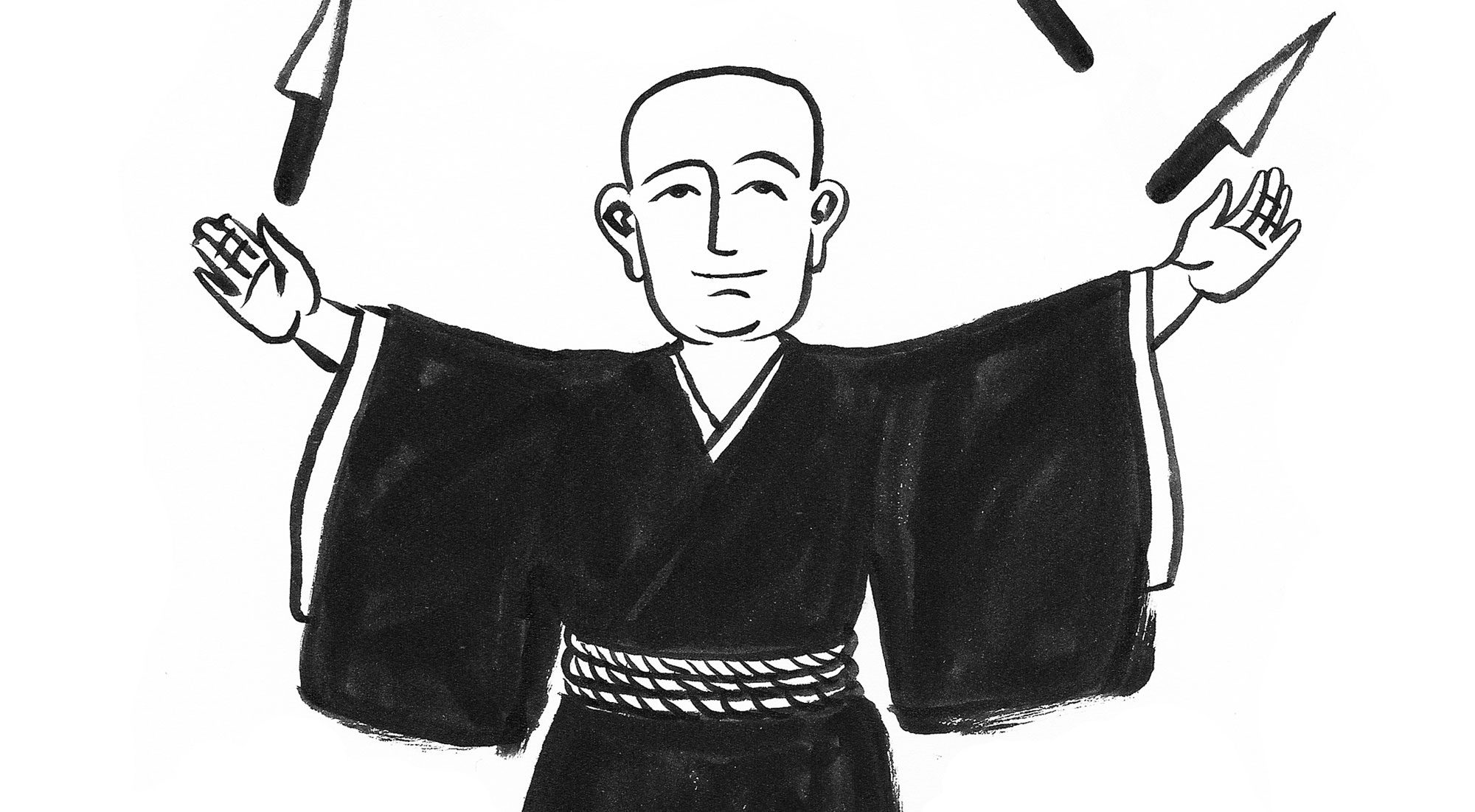This past spring I fell into the lovely habit of sitting on my fire escape at dawn with a pot of black coffee and The Roaring Stream: A New Zen Reader, an anthology published in 1996, edited by Nelson Foster and Jack Shoemaker. Each chapter in the book introduces a famous master from China or Japan and provides excerpts from his most significant writings and lectures. I began jotting down poems in response to the lines, images, and metaphors that I encountered—one poem per chapter, one chapter per morning. It was an enjoyable, aimless exercise, and it was exciting to see what my own mind did when allowed to build upon the wisdom of the ancients, using scraps of their language as a foundation. (Of course, I am neither ancient nor wise, only caffeinated.)
As the spring progressed and I worked my way deeper into the history of Zen, I settled on the idea of making a poem for each of the 46 profiled masters. After about 20 poems, though, my library copy of The Roaring Stream was due back, and the next person to check the book out lost it. Ha! Transience! I told a friend about my predicament and he suggested I go out and buy myself a copy—apparently the quirky beauty of the situation escaped him. I suspect that one day the dawn will find me back on the fire escape, my pencil running wild on the blank white page, old men in robes looking over my shoulder. Until then, here’s a brief selection from what I’ve taken to calling “Eddies in the Roaring Stream.”
–Leath Tonino
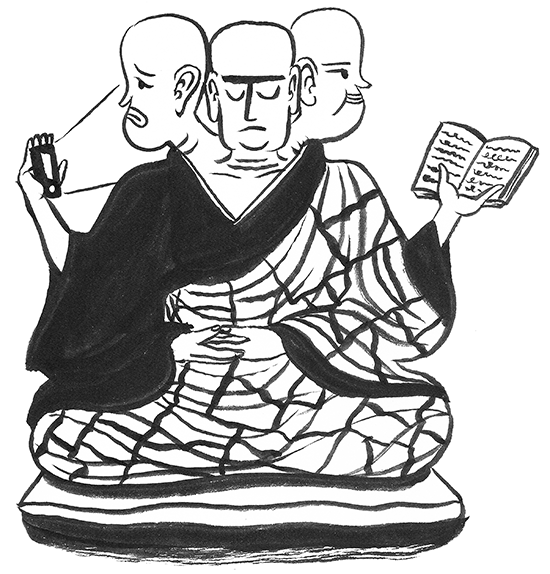
Chao-chou
(778–897)
we’re all on the job
all the time,
moving materials, staging supplies,
trying not to trip
on uneven ground slick with spring rain,
building houses, bridges, cities,
building a world on top
of the world,
half-blind, always looking left.
and to think some of us
live 120 years
carrying a board
on our right shoulder,
balancing it
on the bone.
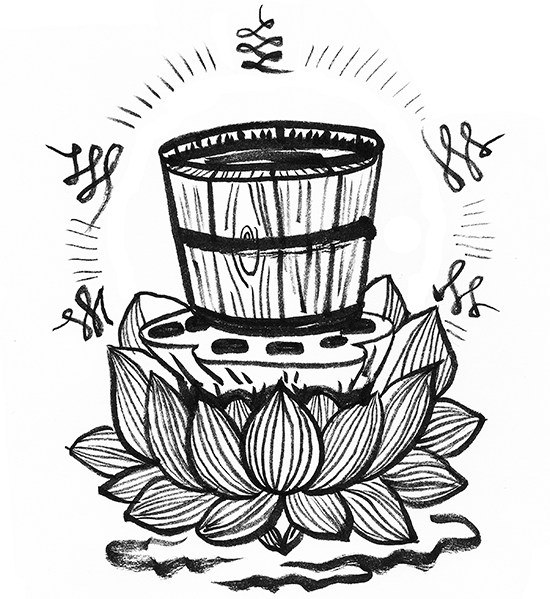
Hsueh-feng
(822–908)
dumb as a bucket,
they say,
but I say hear the bucket
speak, its voice
full of water, full of air,
emptied then brimming
with river, with rice.
who wouldn’t want to be
a bucket like this?
good for carrying, good
for spilling, never hungry
but always eating,
talking with its mouth full.
Ts’ao-shan
(840–901)
three cups of wine and still thirsty,
the drinker doesn’t know
the drink has set in
until standing up
his legs swerve left
and he falls right,
reaching out for a wall,
a friend, something
that isn’t
there.
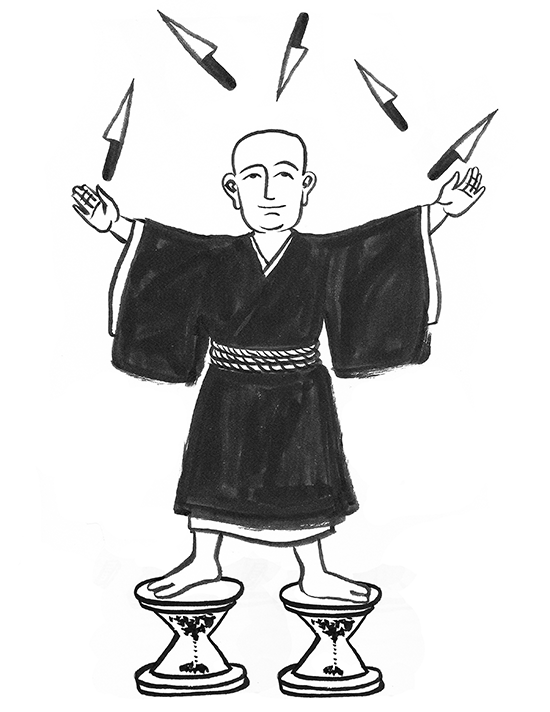
Fa-yen
(885–958)
when we say yes
or no, this
or that, without
having first traversed
mountains and seas
in searching,
that is five knives
leaving our hands,
flashing silver
in the sunlight,
and us
calling
the moment
juggling.
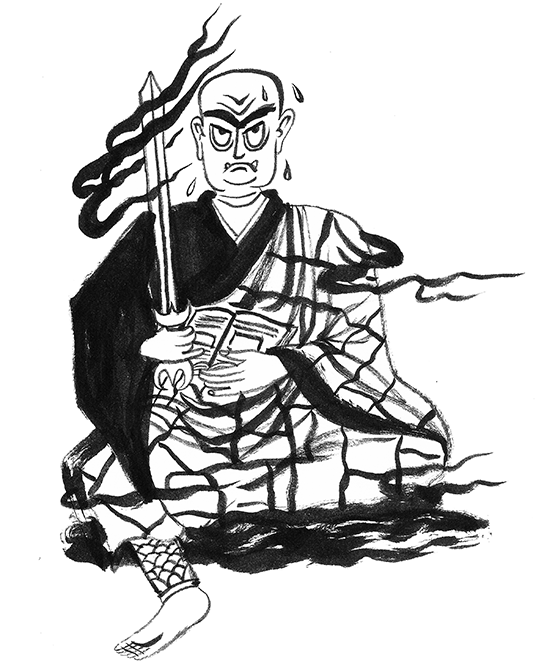
Ta-hui
(1089–1163)
love of finery, sloth, status-seeking,
evil of all kinds, we face
these as a warrior faces
his war, his fate,
riding straight at them
on a slow donkey
loaded with books
and bread.
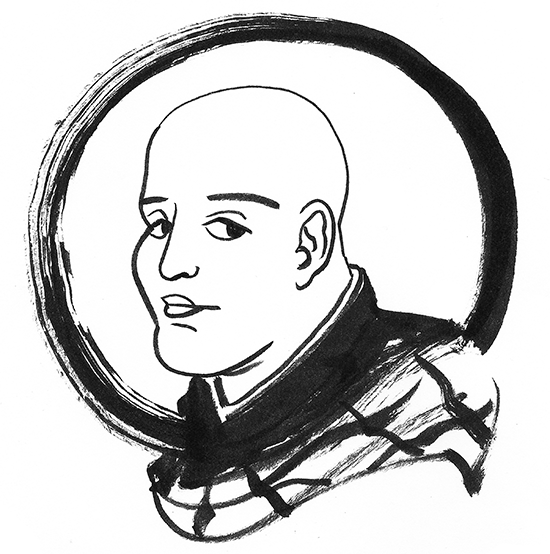
Dogen
(1200–1253)
pretend to laugh
and you will come to laughing.
pretend to cry
and you will one day weep.
sit long enough
and you will lose your legs,
won’t stand,
won’t ever walk again.
this is a good thing.
it gets you where you’re going.
Enni Ben’en
(1202–1280)
having committed a crime,
the thief makes his getaway
in muddy socks,
thinking because he’s ditched
his shoes
he can’t be tracked.
had he only locked himself
in the safe
and eaten the money
we’d still be on the case today.
Keizan
(1264–1325)
head in the toilet, scrubbing.
no brush, no rag, no sponge.
scrubbing with thoughts, schemes, dreams
of the spotless.
driving
these hard against the hard
ceramic bowl.
what’s cleaning what?
who’s cleaning
who?
Thank you for subscribing to Tricycle! As a nonprofit, we depend on readers like you to keep Buddhist teachings and practices widely available.
